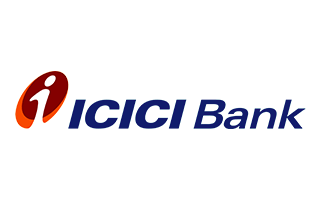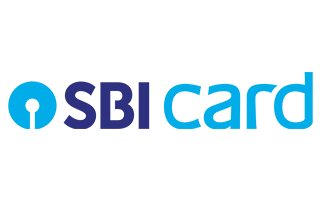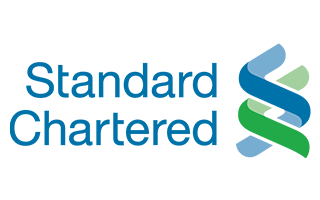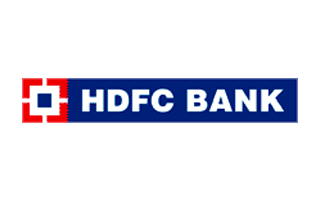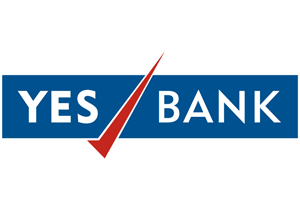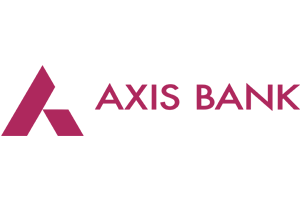

Get a Credit card for all your needs
- Quotes from 11 banks.
- Unbiased recommendation based on your Credit score.
- Many Exciting offers & rewards.
- Trust of 39 million plus satisfied customers
What is a Credit Card and How It Works?
A credit card is a plastic instrument that helps you buy groceries, accessories, travel & movie tickets, besides entitling you to the privileges of airport lounge access, 24x7 concierge assistance, etc. The money spent on the card helps you rake in rewards, discounts, cashback, fuel surcharge waivers, and much more. The rewards earned can be redeemed for exclusive gifts, cashback to the credit card account, etc. These rewards can mostly expire within 2-3 years of their accumulation. A very few cards come with never expiring reward points. You can also get rewards on spending a specific amount as stated in the list of offers. These benefits can be in the form of gift vouchers or the fee waiver, resulting in enhanced savings.
You can make purchases at both online and offline stores. The online purchases would require visiting an e-commerce portal, choosing the product of your choice and picking ‘Credit Card’ as the mode of payment from the scroll. If you don’t it comfortable buying online, you can also visit a retail store and swipe the card to buy your needs. You can either go for a straight purchase via credit card or opt for EMI option. If you choose the first option and pay the entire due, there won’t be any interest. Else, the credit card provider would charge interest at the rate of 2.50%-3.50% per month, accumulating to 30%-45% annually. The EMI option comes with an interest rate but at a lower rate of 13%-18% per annum.
Why Choose Credit Cards?
You can choose credit cards to make the most of the following benefits on offer
- Comfort
- Convenience
- Luxury
- Best-in-class services
- Freedom to shop for anything from anywhere at anytime
- And much more
Features & Benefits of Credit Cards
- You can earn reward points on several online and offline spends. Rewards earned can be redeemed to book flights, movie tickets, and for shopping at top brands. The redemption rate can vary among the cards, with some offering ₹1 for 1 reward point while others offering 20 or 30 paise for every reward accumulated.
- Accelerated reward point offers are also up for grabs. Say a card comes with 10 normal reward points for every ₹100 spent. Another one comes with 5X reward points per every ₹100 spent. The latter is nothing but an accelerated reward offer, taking the total rewards to 50 in comparison to 10 in the case of normal reward structure.
- Cashback and discount benefits reduce the cost of card shoppers greatly. While cashback is credited to the card account on a specified date after the transaction is made, discounts mean an outright reduction of the cost. Reward points can also be redeemed as cashback to the credit card account in the ratio as specified by the bank.
- Avail a surcharge waiver on fuel spends to decrease your vehicle refill cost
- Movie ticket vouchers, access to golf courses, discounts on dining & shopping make cards more appealing
- Accumulation of air miles, cashback or discount on hotel booking, travel cover and much more are available on travel credit cards
- Enjoy lounge access at select domestic and international airports
- Get 24x7 concierge services as assistance for room reservation, car rental, flowers & gifts, etc
- Accomplishment of milestone spends waive off the annual fee
- Instant loan can be availed against credit card at attractive interest rates
- Zero lost card liability feature provides cover for any losses arising out of the fraudulent usage of the lost or stolen card on reporting the incident immediately to the concerned lender on their helpline numbers.
- Dispute resolution
- Emergency card replacement facility
Types of Credit Cards
There are tons of credit cards available these days, especially as India gears for a full-fledged cashless economy. Even as they are in abundance, not all can suit you. And so, you need to figure out your requirements properly before choosing from the premium credit cards, which are broadly categorized into the following.
Cashback and Rewards Cards
These cards offer cashback and rewards on spends. With cashback, the resultant cost of a purchase comes down, resulting in increased savings. Reward points, on the other hand, can be earned on spends. The rewards can be further redeemed for shopping at several online and offline stores. Here’s a list of top five cashback and rewards card.
- Citibank Citi Cashback Credit Card
- Standard Chartered Manhattan Platinum Credit Card
- SBI Card Prime
- HDFC Moneyback Credit Card
- ICICI Bank Coral Credit Card
Travel Cards
An avid traveller? Think of travel cards that offer miles on travel spends while also letting you chill at both domestic and international airport lounges. The miles earned can be redeemed for ticket and hotel booking. Don’t wait, just choose from any of these below and apply for the one you think would be the best in your case.
- Air India SBI Signature Credit Card
- CITI PREMIERMILES Card
- Jet Privilege HDFC Bank World Card
- Jet Airways ICICI Bank Sapphiro Credit Card
- American Express Platinum Travel Credit Card
Fuel Cards
High fuel prices making it difficult for you to drive on the road? Don’t worry, there are fuel credit cards that earn you points on refilling your vehicle. Even a cashback or discount can also be offered while refilling the vehicle at fuel stations. These top five premium credit cards (fuel) are up for grabs.
- BPCL SBI Card
- Standard Chartered Super Value Titanium Credit Card
- Citibank Indian Oil Credit Card (Platinum)
- HDFC Bharat Cashback Credit Card
- ICICI Bank HPCL Coral American Express Credit Card
Dining Cards
Paying much more on dining outside than you would like to? Well, dining cards are right for you by letting you enjoy your meals at restaurants replete with great ambience while also offering discounts on your spends. Check out some of the best dining cards on offer below.
- HDFC Regalia Card
- HDFC Platinum Times Card
- ICICI Bank Rubyx Credit Card
- ICICI Bank Instant Platinum Credit Card
How to Compare & Choose Your Best Credit Card
When it comes to selecting the best credit card, you need to do a thorough research on offers, benefits, fees, etc. So, don't forget to compare different cards on the following parameters.
- Fees/Charges
- Cash backs
- Rewards & Their Redemption Value
- Latest Offers on Travel, Dining, Shopping, Entertainment, etc
- Fuel Surcharge Waiver
- Interest-free Credit Period
You can thus look below and see which one is the best for you according to above pointers.
| Credit Cards | Reward Points and Other Offers | Fees and Charges |
|---|---|---|
| SimplySAVE SBI Card |
|
|
| BPCL SBI Card |
|
|
| HDFC Moneyback card |
|
Annual Fee - ₹500 |
| ICICI Instant Platinum Credit Card |
|
|
| Standard Chartered Platinum credit card |
|
|
| The American Express Gold Card |
Footnotes
|
|
| Citibank Cashback Credit Card |
|
|
| RBL Platinum Maxima Card |
|
|
Note - The annual and joining fees shown above are exclusive of 18% Goods and Services Tax (GST). The tax would be added to these fees.
So, you must have zeroed on you want to have after looking at the list of premium credit cards.
Eligibility Criteria
- You should be at least 18 years of age at the time of application.
- You must not be more than 65 years old by the time you apply.
- Salaried must have an annual income of at least ₹2 lakhs. On the other hand, self-employed must be earning a minimum of ₹1.5 lakh to get the approval. However, the income criteria can differ from bank to bank.
- The credit score must be 750 and above for a hassle-free approval
Note - The eligibility criteria shown above can vary according to the type of credit card offered.
Income Eligibility With Respect to Credit Card Application
You should first check with the lender whether the income sought for a credit card is on a gross or net basis. Also, be clear that banks generally consider the fixed income for approving the application. The fixed income does not include the incentives and other variables earned by an individual. So, see whether the fixed income is at par with the amount needed to gain an approval. If so, then you can apply. If not, then look for banks that can offer you the cashless instrument based on your fixed income.
Example - Ravi applies for a credit card at a bank which considers gross fixed income to approve or reject the application. The income requirement is ₹5 lakh a year. Income particulars of Ravi for 1-year period is shown below.
- Average Gross Monthly Income - ₹45,000
- Fixed Monthly Income - ₹25,000
- Average Incentives in a Month - ₹20,000
- Total Annual Income (Including Incentives) - ₹5,40,000 (45,000 x 12)
- Total Annual Income (Without Incentives) - ₹3,00,000 (25,000 x 12)
Keeping this in mind, Ravi's application would be rejected even as the income including incentives is above the amount of ₹5 lakh as sought. He must earn a minimum gross fixed monthly income of ₹41,667 to gain an approval on the grounds of income.
Documents Required
- Passport size photographs
- ID Proof - Any one from Passport, PAN Card, Ration Card, Adhar Card, Voter's ID Card, Driving License
- Address Proof - Any one from Passport, Rent Agreement, Telephone Bill, Ration card, Electricity bill, Aadhar card
- Applicants should have PAN Card, Form 16 and Income Tax Returns Statement.
- Recent salary slips/certificate for last 3 months/latest bank statement showing the credit of salary for a minimum of 3 months
Benefits of Applying at Wishfin
The online application at Wishfin offers the following benefits.
Fast - Online application can be made in a few minutes. You just need to answer or fill relevant personal and professional information to complete the application.
Instant Approval - The fast application would result in an instant approval if the details are verified successfully.
Effective Comparison of Offers - You can compare exciting offers in terms of reward points, travel privileges, fees, etc, as they are all explained at Wishfin. A good comparison helps you choose the best deal on offer that would not only match your needs but also let you live with style.
Credible Information Display - The information displayed is researched thoroughly and get updated on a timely basis, hence ensuring a greater degree of reliability.
Transparency in Information - Not only the offers, you can also get to know the applicable fees & charges. The information is transparent and so, you can get a complete detail before applying for the card. This only boosts consumer confidence and has made many apply through Wishfin.
Excellent Track Record - Wishfin has enabled the wishes of more than 18 million customers through a rich vein of financial products including credit cards.
How Can Credit Cards Help Maintain a Strong Credit History?
Credit cards are one of the best financial instruments to improve your credit history. All you need to do is to shop with discretion and make payment on or before the due date. The plastic instrument can last forever even as they get renewed every 2-3 years from the date of their issue. It can thus continue building your credit history, much unlike loans that expire after a certain period. You just need to instill the credit discipline by paying dues on time to get your credit history stronger than before. A strong credit history would empower you to go for a card upgrade or make you eligible for several other exciting deals.
How is Interest Calculated on Revolving Credit?
The best part with a right credit card is that you can shop for almost everything that’s available, be it online or offline. Plus, you can enjoy an interest-free period of 20-50 days as extended by banks across India. You can pay the full amount to get relieved of the interest and tax burden. However, if you pay below the total due or minimum due, the interest and taxes would add on to the bill to take something extra out of your pocket. When it comes to interest rate, it ranges from 2.5%-3.5% per month on an average. On the overall interest amount, the GST at 18% is getting charged. Previously, the service tax at 15% was levied on the interest amount. Let’s understand how interest gets calculated on the revolving credit.
Interest=Outstanding Amount x Rate of Interest x 12 months x number of days/365
Example- Ram Manohar Sharma, an engineer, shops via ICICI credit card for purchasing the goodies. Let’s see how his shopping was a month or two ago in the table below.
| Date | Transaction Details |
|---|---|
| May 10 | Purchased shoes worth ₹10,000 |
| May 17 | Bought sarees costing ₹6,000 |
| May 20 | Statement Generation Date (Total Dues - ₹16,000, Minimum Due - ₹800 |
| June 13 | Made a payment of ₹4,000 |
| June 16 | Bought a mobile costing ₹11,000 |
| June 17 | Made a payment of ₹3,000 |
| June 20 | Statement Generation Date |
As you can clearly see in the table, Mr. Sharma has refrained from paying the entire bill and would thus bear interest on the outstanding balance. The interest rate charged by ICICI Bank is 2.49% per month. Let’s calculate the interest now.
Interest on ₹10,000 at 2.49% for 23 days from May 21 to June 12=(10,000 x 2.49% x 12 x 23/365)= ₹188.28
Interest on ₹6,000 (10,000-4,000) at 2.49% for 4 days from June 13 to June 16=(6,000 x 2.49% x 12 x 4/365)= ₹19.65
Interest on ₹6,000 at 2.49% for 27 days from May 21 to June 16=(6,000 x 2.49% x 12 x 27/365)= ₹132.61
Interest on ₹2,000 (6,000-4,000) for 3 days from June 18 to June 20=(2,000 x 2.49% x 12 x 3/365)= ₹4.91
Interest on a fresh expenditure of ₹11,000 for 5 days from June 16 to June 20=(3,000 x 2.49% x 12 x 5/365)= ₹12.28
Total Interest=₹188.28+₹19.65+₹132.61+₹4.91+₹12.28= ₹357.73
Since the payment of the outstanding balance was not made in full, the late payment charges would be deducted. In this case, it will be ₹750 as the total amount due is 23,000 (10,000+6,000+11,000-4,000). Applying 18% GST on interest rate charged amount of ₹357.73 and late payment fee of ₹750, the tax to be deducted would equal to ₹199.40.
Frequently Asked Questions (FAQs)
Below are a few questions that many credit cardholders ask.
What is Meant by Credit Limit?
A credit limit is a point up to which you can shop via a card. Credit card issuers check your income, repayment potential and credit score before deciding the limit.
How Can I Increase the Credit Limit on My Credit Card?
You can get the limit raised by giving a call to the customer care centre or place a request at the nearest branch of the concerned lender. If the repayment track spanning is found to be good, the lender can raise the limit of the credit card.
What is Unbilled Amount of a Credit Card?
The unbilled amount refers to the spends made after the bill generation date. You can see the unbilled portion in the next billing cycle of a credit card.
What is Called Minimum Due on My Credit Card?
The credit card statement often shows the minimum due, which gets calculated at about 5% of the total outstanding balance in a billing cycle.
Is Interest Chargeable on Credit Card Spends?
No, if you pay the entire outstanding balance on or before the due date of the payment.
Is It Good to Pay Minimum Due Balance Only?
No, the payment of minimum only inflates the bill by inviting interest and taxes. The outstanding balance would keep mounting with constant addition of interest and taxes to the bill if you continue to pay the minimum due.
How Much Interest is Chargeable on Revolving Card Balance?
Yes, there will be charges on revolving card dues at around 2%-3.5% per month. So, if a bill worth ₹25,000 comes and you pay ₹15,000 only, the remaining ₹10,000 will be added to the next billing cycle. The interest would thus be charged on the unpaid balance. Plus, on the interest amount, the GST at 18% would also be charged.
Will the Delayed Card Payment Affect My Credit Score?
The payment delay will negatively impact your credit health by lowering your score. If you continuously delay the payment of credit card dues, not only your credit score goes down but even the late payment charges, interest and taxes would mount.
What are the Benefits of Timely Card Payments?
Timely payments would lead to a constant rise in your credit score, increasing the scope for a credit limit enhancement. It would also brighten your future credit prospects.
What is Debt Settlement?
Debt settlement is an agreement you sign with the lender to reduce the debt to an amount you would find it easy to pay. Normally, lenders agree to reduce the interest liability while discussing a debt settlement deal with customers.
Should I Use Debt Settlement to Get Rid of Credit Card Debt?
Not at all. Your status will be recorded as debt settled, which clearly means your inability to pay off the dues in full. The CIBIL score may not come down but would negatively impact your credit history. As a result, you may find it tough to get a loan or credit card approval in the future.
Can I Get a Pre-approval for a Credit Card?
Yes, you can, by servicing different kinds of debts responsibly. The effective management of debts raises your creditworthiness, resulting in a pre-approval for credit cards.
Will I Get a Credit Card with No Credit History?
Yes, you can by the following ways.
- From a bank where you have a salary account
- From a bank where you have been maintaining a savings account or any other relationship for long
- A card can be issued against fixed deposit, with the credit limit likely to be 80%-90% of the FD amount
What to Do When Your Credit Score is Low?
If the credit score is found to be low, you can apply for a credit card against the fixed deposit. Just check with the lender about the minimum amount needed to open a fixed deposit.
Can I transfer money from one credit card to another credit card?
Yes, you can transfer your outstanding amount on one credit card to another credit card with the Balance Transfer Facility. This facility allows you to repay the outstanding balance in easy monthly installments at a lower rate of interest. Almost all the banks and financial institutions provide this facility to their customers.
Can I Get a New Credit Card from the Bank Where I Already Hold One?
Yes, you can, provided you have a good credit score and conform to the requirements with respect to age and income as stipulated.
I am self-employed and I don't file the Income Tax Return(ITR). Shall I be Approved a Credit Card?
Yes, you can get a credit card. However, banks won't feel comfortable offering you an unsecured credit card in the absence of income proof. You can thus apply for a card against the fixed deposit. This is called as secured credit card.
Should I Go for a Credit Card Upgrade?
Yes, if the existing card lacks offers that are there in other competing products. You can request for an upgrade at the bank branch and get your card added with exciting features. The upgrade would eliminate the requirement of applying for a fresh one. With that, you are also relieved of the duty to manage different credit cards which can be the case otherwise.
How to Convert Card Purchase into EMI?
Mobile companies and other firms display brand new products on e-commerce websites to gain more user traction. When you go to shop these products, you would need to choose from several payment modes such as credit card, debit card, internet banking and even EMIs. You can thus choose the EMI option to pay over a select tenure of 3, 6, 9,12, 15,18 or 24 months. The interest rate on EMI transactions comes anywhere between 14%-18% per annum, much unlike 30%-40% on revolving dues.
What are Supplementary/Add-on Cards?
These are offered to spouse, father, mother, son and daughter of the primary cardholders.
Do Credit Cards Offer Protection Against Fraud?
Yes, credit cards offer protection through the following.
- Certified EMV Chip
- Zero lost card liability, wherein you just need to report the incident to the customer care of the concerned credit card issuer to stay protected against fraudulent transactions made after the loss of the cashless instrument.
What Should I Do When My Card is Lost?
Immediately dial the 24x7 customer care executive of the concerned lender if and when such an incident takes place. Get the credit card blocked immediately to prevent an unauthorized use of the same. You can check the customer care number on the card issuance letter and even on the website of the lender.

